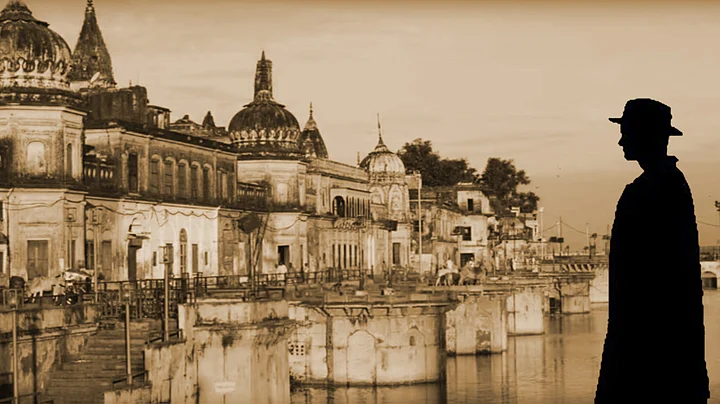The holy land of Ayodhya holds a special status and has been at the centre of the biggest dispute of the country for decades now. From time to time this long-drawn dispute stirs up the social and political atmosphere of the country but seldom have we moved in the direction of a resolution.
From communal discourse to the judiciary, from the bureaucracy to social and political analysis, this ancient land seems to be caught up in a gridlock of judgement and hatred.
Sounds like a Kafkaesque situation, doesn’t it?
Kafkaesque describes an otherwise ordinary situation, often involving bureaucratic red-tape, that is somehow made nightmarish and surreal. Coined after the German author Franz Kafka, the idea developed from his surrealistic mode of writing.

Kafka in Ayodhya
Zafar Anjum, a Singapore-based Indian author and entrepreneur has launched his latest book Kafka in Ayodhya – a collection of eight short stories.

The lead story in the collection is an imagined tale by Kafka, when he comes to Ayodhya in the backdrop of the Allahabad Court verdict of 2003 concerning the Ram Mandir-Babri demolition issue.
Zafar shared the thoughts which led him to attempt this story.
There was a lot of anxiety in India as the Ayodhya verdict was about to come out. I had a friend in Varanasi who shared with me all that was happening, how people were reacting and how the situation had become intense. This led me to imagine what if someone like Kafka were to visit India at this point of time. What would he see, what would be his reaction, and how he would tackle it.Zafar Anjum, Author, Kafka in Ayodhya

Zafar was incidentally travelling in Germany when the Ayodhya issue was making headlines. An admirer of Kafka’s work, he was fascinated by the thought of taking up the liberty to write something, involving a Kafkaesque theme.
Though Kafka lived his whole life in Europe and has written in German, his surreal stories described situations that were bureaucratic, often dark, and something everyone can relate to.Zafar Anjum, Author, Kafka in Ayodhya
Dedicated to the “Wounded Idea of India”
Zafar wrote this short story a decade back in 2002, but didn’t get an opportunity to publish it. Meanwhile, he became a publisher and launched ‘Kitab’ to promote Asian English writers.
Zafar says he is distressed by the recent attempts to silence free speech in India and condemns the attack on writers. He has dedicated this book to the dissent registered by writers in India.
But Zafar still believes in the “idea of India”.
I wouldn’t say India is intolerant. India has a 5,000-year-old history which has brought us wisdom. But yes, there are some elements who are trying to suppress the freedom speech.Zafar Anjum, Author, Kafka in Ayodhya
He believes that Indian writing has always commented on socio-political issues, and that one cannot extricate writing from the realm of the social and the political.
(At The Quint, we question everything. Play an active role in shaping our journalism by becoming a member today.)
